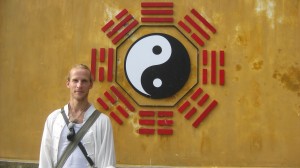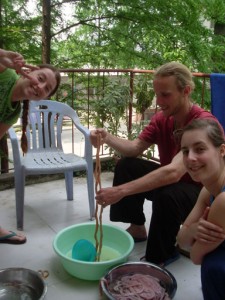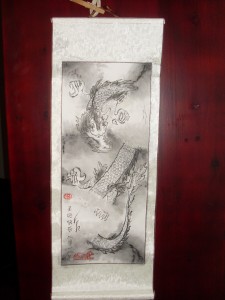I  missed my usual blogging goal this last couple weeks because I was very excited to have my first ever visitor from home. I was trying to be a good host and put myself in the frame of mind of a newcomer, thinking back to when I first came to China and when I first came to my master’s school. I realized how much my own attitude has changed in the years since my arrival, how it has become a kungfu attitude.
missed my usual blogging goal this last couple weeks because I was very excited to have my first ever visitor from home. I was trying to be a good host and put myself in the frame of mind of a newcomer, thinking back to when I first came to China and when I first came to my master’s school. I realized how much my own attitude has changed in the years since my arrival, how it has become a kungfu attitude.
When I first arrived in China, there were a number of things I had accepted as facts about myself. I knew my stomach had problems: I knew I would get seasick before my friends or a stomach ache if I got nervous. I knew that I got colds a few times a year. I knew that I got angry about the things I encountered in China pretty often. These and other observations were a minor appendage to my self-identity. I ascribed them to genetics, or just “that’s how I am.”
Somewhere along the line in the years since my thinking has changed. Part of it is the belief that it’s not just a matter of, “that’s how I am,” but that these are weaknesses that I can improve if I set out to do so. It’s a combination of accepting responsibility and raising awareness. I know that if I am wise about my dress, diet, and exercise, I need not get sick and my stomach is happy. I know that through meditation and attention, I can avoid the anger I used to feel. These things are in my control if I take control of them.
I am reminded of this time when I was a young teenager. I was walking out of a science museum in North Carolina with my Aunt, and I obliviously let the door slam in her face behind me. She yelled at me — gave me a really hard time for being rude and inconsiderate. I thought at the time, “How can you possibly expect me to keep track of who is behind me when I go through a door? That’s like trying to see the back of my own head!” But her admonishment helped me to realize that a higher level of responsibility and care were both possible and expected. That is a kind of kungfu attitude.
The kungfu attitude is summed up, to me, in a quote I heard from another student here at the school. “Chinese medicine does not ask why you are sick, it asks why you aren’t well.” A person has the potential to be perfectly happy and healthy, and any obstacle keeping us from that well-being is able to be improved upon by long-term effort. When I grasp this completely, I believe I will really understand kungfu.


